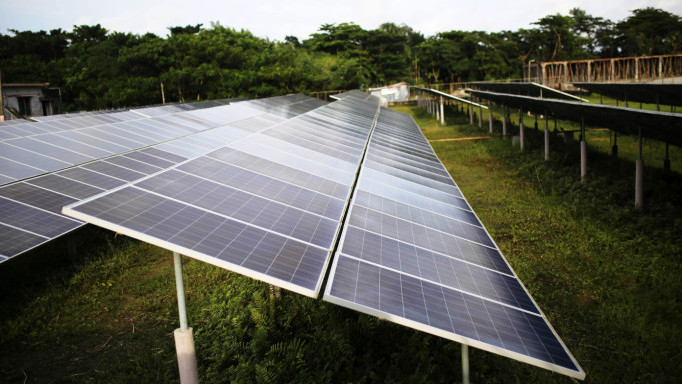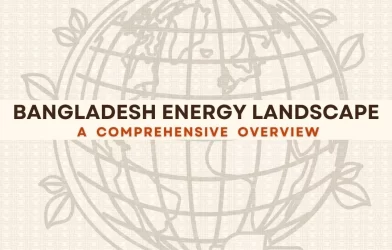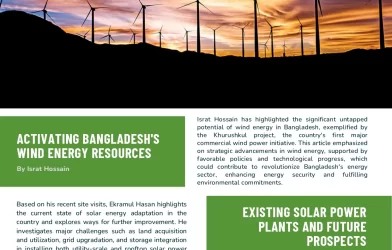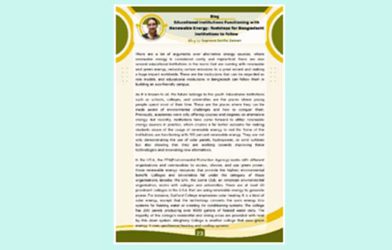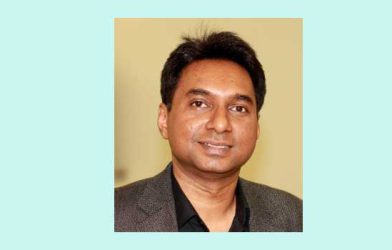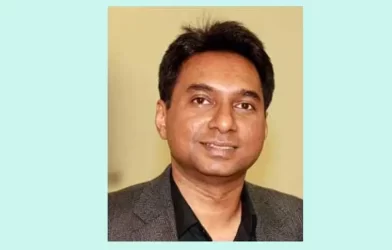Green power generation limping: Analysts
Analysts highlight poor progress on green energy at a Sanem webinar
The government has failed to make enough progress on renewable energy production, despite global successes in the field, and therefore should focus on annual small-scale goals with private partnerships to pick up the pace, energy analysts said at a webinar on Wednesday.
The government does not have trust in renewable energy; otherwise, its share in power output could have been larger than it is now, said Buet Professor Mohammad Tamim at the webinar organised by the South Asian Network on Economic Modeling (Sanem).
The professor of petroleum and mineral resources engineering said that as of now, only 600MW of green power is being supplied, while 400MW more is expected to be added to the grid by the end of this year. “We cannot remark that this progress is the result of successful efforts by any means; rather, it is a complete failure,” he said.
Since 2010, the government has awarded around 48 solar projects to private stakeholders with a total capacity of over 2,000MW, but only 10 of these have been completed, providing the 600MW people now get through the national grid.
When it comes to other green energy sources, only 230MW of hydropower has been added to the grid since 1962, while 60MW wind power was added this June.
Professor Tamim said the time has come to look into the reasons behind the failure of the country’s renewable energy policy.
“A bigger amount of renewable energy could have been added to the national grid by now if we could develop small distributed renewable projects under feed-in tariff schemes. But we could not do that,” he added. Feed-in tariff schemes are initiatives where a government pays households and businesses for generating electricity mostly from renewable sources with their individual efforts.
He went on saying that large-scale renewable energy generation is not possible without government sponsorship.
Shafiqul Alam, an energy analyst at the Institute for Energy Economics and Financial Analysis, said that instead of talking about 24,000MW of renewable power generation by 2041, the government should set a year-wise action plan.
“Instead of talking about 17-year targets, we should focus on short-term targets and find out why we fail to attain them,” he said.
Sanem Research Director Professor Sayema Haque Bidisha said that despite the global growth of renewable energy, Bangladesh has yet to show any significant progress.
Sanem Senior Research Associate Israt Hossain discussed four misconceptions about renewable energy: waste management of solar panels after their lifecycle, land scarcity, storage facility costs, and confusion over attaining the 40% target by 2041.
Associate Professor Moshahida Sultana, from the accounting and information systems department of the University of Dhaka, also spoke at the event, among others.






